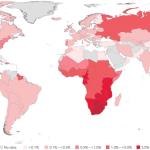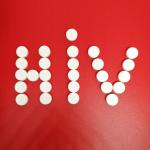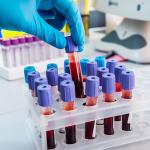Last week, I was fortunate to hear a talk at the Population Council given by the inspiring Dr. Wafaa El-Sadr. Dr.
HIV
Since the 1980s, great strides have been made in designing and producing new drugs to prevent and treat HIV-AIDS.
Like an unlucky penny, Vladimir Putin keeps showing up in the American media. From allegations of election tampering to hacking emails, Mr. Putin chooses to stay relevant through notoriety.
In recent years, circumcision has become a prickly issue. Protesters smear fake blood on their pants*, decrying "genital mutilation." They declare that a man should make the choice for himself when he comes of age.
Acquired immune deficiency syndrome (AIDS) has been responsible for 35 million fatalities since it was first recognize
Charlie Sheen via Shutterstock
Economic and geopolitical instability can be the worst enemies of m






